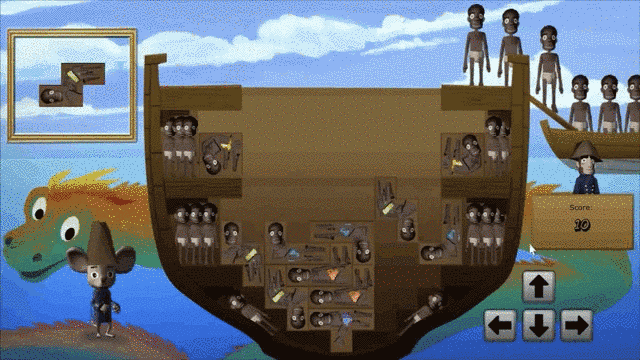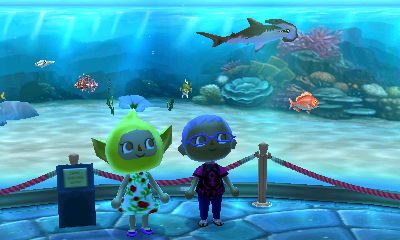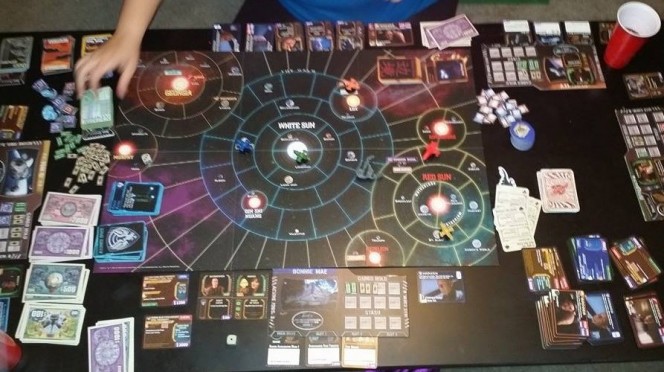TW: I’m going to go ahead and tag this one for racism and racist imagery.
This week a little bit of hell broke loose in the serious games space that quickly circulated to the mainstream. Serious Games Interactive tweeted about a game that they were playing, Playing History 2: Slave Trade, and let followers know that it was on sale. And then it happened. Educators started playing the game and discovered that not only did the narrative make light of the subject matter (perhaps in an attempt to make it “kid friendly”) but that the game included a Tetris-based minigame that asked you to stack slaves in a slave ship for the Middle Passage. Yes, let that shit sink in for a minute….make your kids stack human beings for “efficient” transport across the ocean.
I can’t even begin to tell you what all kinds of furious I would be if some well meaning teacher introduced this shit to my kid. Now, I understand trying to make historical discussions of slavery age appropriate. I struggled with it myself as an elementary school teacher and I struggle with it now as a parent, but we don’t do this at any point by making it seem fun. The pretzeled pieces in the minigame are meant to represent human beings.
After the initial outrage, a half-hearted attempt at explanation by the developer, and further half-hearted excuses that the insensitivity could be attributed to European developers dealing with American history the slave Tetris portion of the game has (apparently) been removed from the game itself.
There is so much to talk about in terms of this fiasco, but what I want to think through is how do we avoid this kind of madness and whether or not the community’s outrage was warranted because the Serious Games International folks seem to doubt it based on their tweet that says that the content was removed because some folks found it offensive (not because that shit actually was).
The game and trailer was updated Monday. Slave Tetris has been removed as it was perceived to be extremely insensitive by some people.
— Serious Games (@SeriousGamesInt) September 1, 2015
At what point will people stop issuing fake apologies because “people were offended” and not because they have actually caused the offensive? Agency folks, agency. Mistakes weren’t made, you made the mistake!
As game scholars, developers, designers, theorists, journalists, and players we have to be willing to stand up and make our voices heard in these instances. We have to be the ones to call “bullshit” when we see it. Years ago (back in the Stone Ages of game studies) I did such a call out when instructors presented at a conference talking about agency and games in education and how students involved had found ways to make people slaves in a simulation game…and no one challenged it. No one used it as a teachable moment to talk about slavery and what it means that a simulation allowed for it or what the students themselves intended when they set up their own little slave ring. Yep, that went over about as well as you would expect. I made some enemies with “luminaries” in the field. And you know what? I didn’t give a fuck then and I give less of a fuck now. I’d do it again…in a heartbeat. This is what we are called to do, educate when we can. Not in the sense of calling people out aggressively, but in a sense of engaging with other educators and interrogating what the problems and possibilities of games in the classroom are. It is only when we do this that we can even begin to hope to prevent things like slave Tetris and I’ll be damned if that is something that we don’t need to prevent.






One thought on “Slave Tetris and Our Responsibility to Game Studies”
” And you know what? I didn’t give a fuck then and I give less of a fuck now…This is what we are called to do, educate when we can. Not in the sense of calling people out aggressively, but in a sense of engaging with other educators and interrogating what the problems and possibilities of games in the classroom are. ” HELL YEAH! Its also important to think about strategies of un-teaching–how do we eliminate the teaching of pedagogy or ideology that diminishes our capacity to reach our full potential as human beings. Those moments of aggressive calling out as you mentioned are important because they often lead to watershed moments that reveal oppressive schemas that operate under the surface.
On another note, I sometimes think about that top photo of the actual slave ship and how it was organized to manage human cargo. Ships were redesigned to improve air flow so that Slaves would be less likely to suffocate or suffer heat stroke. Sailing technology was improved so that ships could better navigate the coves, rivers, and waterways of West African to have better access to higher quality slaves. A whole branch science was invented to facilitate cargo protection. I see that photo of the slave ship and I honestly think, “HOW WAS THAT POSSIBLE!?!” How did someone ever think that the transportation and sale of human beings for profit could ever be a thing. The thing is that the slave trade came out of the same type of thinking as the tetris slavery game–thinking of the type that only considers whether we can do something and does not consider the moral or ethical aspects of the idea. Serious Games obviously still have not considered the moral and ethical aspects of the game by the use of the word “perceived” in that tweet. The use of “some people” was also racially or ideologically coded language.
Anyway, I hope that I can continue engaging with other administrators and educations in interrogating what the problems and possibilities are in the classroom on a more macro scale in my role as Dean. I think one of my challenges is to constantly interrogate the consequences of administrative decisions for our stakeholders. I hope I have the courage you mention to stand in the way you did and accept that this will sometimes make enemies. Great work. I enjoyed reading the article!